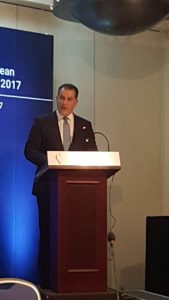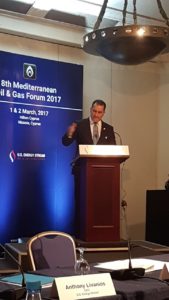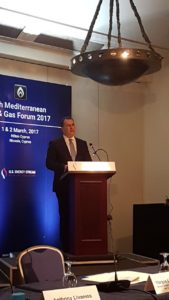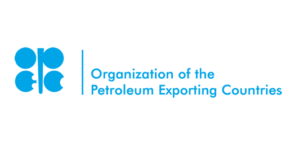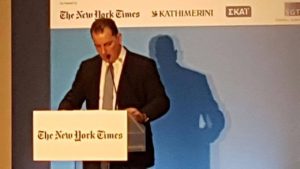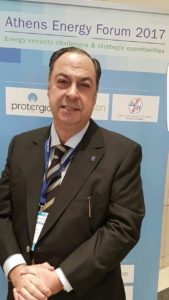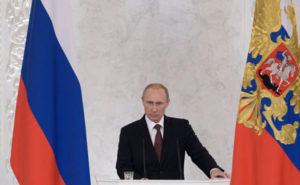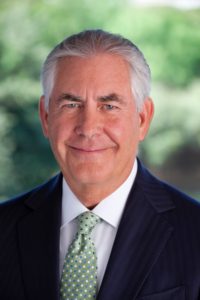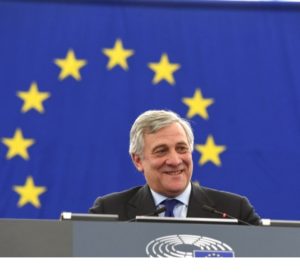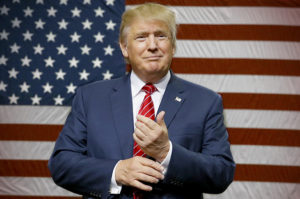

Introduction
Sustainability of the global environmental as an integral part of a sustainable economic development policy and strategy is gaining prominence and attention of world leaders and economic development policy advisers and strategists. The high and the more frequent incidents of the devastating impacts of natural disasters due to the changing climatic conditions has become the wake-up call that we should not expect the global environment to sustain us, as an independent world, if we continue the assault on the global environment. Access to adequate water for economic activity, as well as its desired quality for human consumption and to clean and affordable energy are vital to our survival in this interdependent world of ours, and should be an integral part of the economic development agenda.
The World population is projected to grow from the current level of 6.5 billion people to roughly 9 billion in 2035. The pursuit of improving living standards would come with the increasing population growth, which would inevitable place more pressure on the natural environment and could lead to global climate crises, if the appropriate mitigating measures are not taken. The global demand for energy is expected to increase by roughly 50 percent by 2025-2030 and water demand will also be rising drastically. Energy production and use is intertwined with water usage. The interplay and relationship is as close “as daylight is unto darkness,” to quote Shakespeare As a result, and to maximize benefits to society of these three important resources (energy, water, and the environment) environmental requirements should be fully integrated into the production and uses of energy and water.
Water is utilized directly as a source of electricity production from hydroelectric plants, cooling of electromechanical machinery and equipment in thermal power plants, it is used in thermal boilers to raise steam into turbines for power generation and directly as heating energy, it is used in crude oil de-salters and directly in washing solid fuels for power generation, and watering of coal-beds to minimize potential of self-combustion. Unfortunately, in some other cases rivers and lakes are used as sinks for the by-products of energy production.
The construction of hydroelectric dams has significant impacts on both upstream and down stream uses of rivers and water ways, which, in some cases call for complex in inter-country and regional riparian rights agreements. There are examples of such “The Blue Gold” riparian rights issues with international, regional and inter-country in the Middle East, and several other regions world-wide. Energy production from oil fields and from fossil fuel power plants on climate change are known to be the contributing factors to rises in sea levels, the shrinking of lake waters, shrinking and drying of rivers, deforestation, extremities of dryness and water scarcity, and increasing and expanding desertification. We are witnessing the impacts of these changes on society and human well-being of inadequate supplies of drinking water and water for sanitation. Lake Chad in West Africa is one such example, where the livelihood of millions of people is threatened as a result of climate change impacts on the lake.
Clean water is an incredible precious resource, but as a result of climate change impacts, it is becoming more and more scarce world wide. In the areas of the world where this precious resource is still available especially for the water intensive agriculture industry, it should be preserved by protecting it from pollution, and impacts of climate change. Conservation in its use through the application of combination of command and control measures, and economic instruments should be accorded the highest priority.
Balancing Energy and Water Usage
It is critical to attain the sustainability of these vital resources in the world, especially in the emerging countries, where portable water is becoming a rare commodity.
The main questions remain as to how the balancing act can best be done to achieve this important objective? There are a number of technically and economically feasible and proven options that could be applied. The constraining factor is the lack of the appropriate policy and advanced regulatory environment.
The Role of Renewable Energy – Alternative Sources and Energy Mix
While oil, gas, coal will remain in the foreseeable future the predominant resources to meet the worlds’ energy demand, their continued expansion to meet the growing energy requirement would contribute to the further degradation of the global environment in addition to the overall increase in pollutants and their adverse impacts on human health. The development agenda should call for diversification from further increase in fossil fuel use. The Middle East and North African region, for example, is particular richly endowed with solar radiation, which should enable large scale development of solar-based energy for household and commercial sector uses. Similarly, there is large potential for wind energy development in the region, due to existence of strong wind regimes, both off and on-shore. In this respect Great Britain has reached the 5th or 6th top wind farms position (after Denmark with 20 percent of its current electricity is from wind turbine) in the world and almost reaching 10 percent of the UK power needs, 140 wind projects are already operational. A contribution of renewable energy resources including nuclear of 15-20 percent to energy consumption could lead to same level of reduction in fossil fuel use for power generation, use of methane from landfills, enhancing the use of bio fuels as it has shown the commercial viability in different parts of the World. This will turn have positive impacts on combating acid rain, as well as global warming, water use for power generation, and reduce adverse impacts of climate change as discussed earlier. Iceland and Sweden for example are targeting for a carbon free economy by 2020, promoting hydrogen and fuel cells. On the other hand, in Africa, Kenya for example is exploiting massively its geothermal resources successfully. Research and development is in the final stages of solar energy storage to the extent of developing solar desalination. An introduction to a corporate, business or individual green culture should be spread among the polluters in order to achieve green goals.
Efficiency of Energy Use
As it has been continuously called upon by the IEA roadmaps, policies and regulations to increase energy efficiency, have to be accompanied by deep understanding of the potential role of renewable energy resources and implications for the climate change landscape, geopolitically and socially, in order to maximize benefits of energy use efficiency and conservation from both the local and global perspectives. Compared to the middle income and advanced countries, intensity of energy use in the developing world is much too high. There is significant scope to reduce energy intensity without impacting negatively on economic growth and well-being of the population. To achieve this will require the formulation and implementation of policies and regulatory mechanisms to foster energy end-use efficiency and conservation. The policies and regulatory mechanisms should be encompass the use of both command and control and market instruments. Under the command and control mechanisms, Governments would continue to develop and promote energy efficiency technologies and services and impose achievable energy use limits, which would be enforced for industry, transport sectors and households. For lighting purposes for household and commercial applications, energy savings up to about 30 percent can be achieved. The market instruments should have strong economical incentives through subsidies, tax rebates, finance and pricing to induce actions for efficiency and conservation in order to make a difference; we have to trim our individual carbon foot prints.
Advanced Clean Energy Technologies and Monitoring Systems
Advances in science and engineering capabilities in these areas and use world-wide have brought improvements in the manner in which energy is produced. Medium-speed diesel engines which can perform at nearly 46 percent efficiency, burn less fuel for same energy output as the technologically outdated ones that perform at efficiencies lower than 30 percent. Today, we are seeing super-critical boilers for coal-fired plants with efficiency levels in the range of 46 percent compared to the conventional ones performing at less than 30 percent efficiency. Whilst bio-fuel has become a global commodity, R&D need to go further with hybrid vehicles, wave and tidal power, solar concentrators, combined heat and power (CHP) technology in power plant that are 75 percent efficient v/s 45 percent, advance amine scrubbers for Power Stations and other technologies. The recommendation is that governments need to establish the appropriate legal and regulatory framework to enable a robust carbon capture and sequestration to provide an effective framework for carbon management.
President Barack Obama’s recent speech on energy and environment to the joint session of the US congress; the European commission for their massive dedicated work; and France’s President Sarkozy for their continuous support for the climate challenge, are bringing great hope and greater awareness to the challenges we face as an inter-dependent world to avert the adverse impacts of climate change. It should be a joint public, private, and corporate effort to tackle the problems of climate change, and the critical role of the appropriate policy, legal and regulatory frame cannot be over-emphasized. These should serve to encourage and attract private capital into new technologies that will assist in adapting to climate change and setting guidelines and parameters for efficient energy and water uses, carbon pricing (despite the current carbon market plummeting due to the current financial crisis) and trade. The Emissions Trading Systems (E.T.S.) developed by the European Community and NASA’s proposal to launch satellites into Orbit to track and measure CO2 in the atmosphere are clear examples of policy and regulatory initiatives to help tackle the problem.
In deed, the need to achieve a sustained balance between protecting the environment and energy and water use cannot be over-emphasized in the world, especially in the MENA region, where we face significant challenges to conserve water because of its scarcity, especially in the face of an expanding population growth. Climate, Energy and Water have always played significant roles in preserving and supporting the World’s environment we live in. They will continue to do so in the future. There is now empirical evidence that our environment is gradually changing because of people actions to water and air quality. Emissions from human economic activities have changed ocean cycles, contributed to warmer weather and altered global climate balance. Immediate innovative regulatory policies have to be drawn and deployed by governments within the framework of the UNFCCC and many other protocols to tackle the adverse impacts of pollution, devise mechanisms for abatement of carbon emissions or discharge limits, including carbon capture and storage technology (including mapping and assessing potential sites for site storage, promote in several continents and global monitoring systems to audit greenhouse gas emissions and provide environmental and economical incentives. The actions to be taken in Copenhagen at end of 2009 and the ones we take collectively on as countries, or as continent, or as a hemisphere or globally and even as individual persons will go a long way to catalyze the energy and water future efforts. Fortunately, the world is not going to run out of energy and water resources soon. However, the threats facing our atmosphere, especially climate change, can be minimized only by concerted efforts at mitigation through international cooperation.
Climate is valuable, if not more, as energy and water, to our survival in an interdependent world in which we live.
Roudi Baroudi is the secretary general of the Lebanon Member Committee of the World Energy Council. His email is: wec@lebanonworldenergy.org







